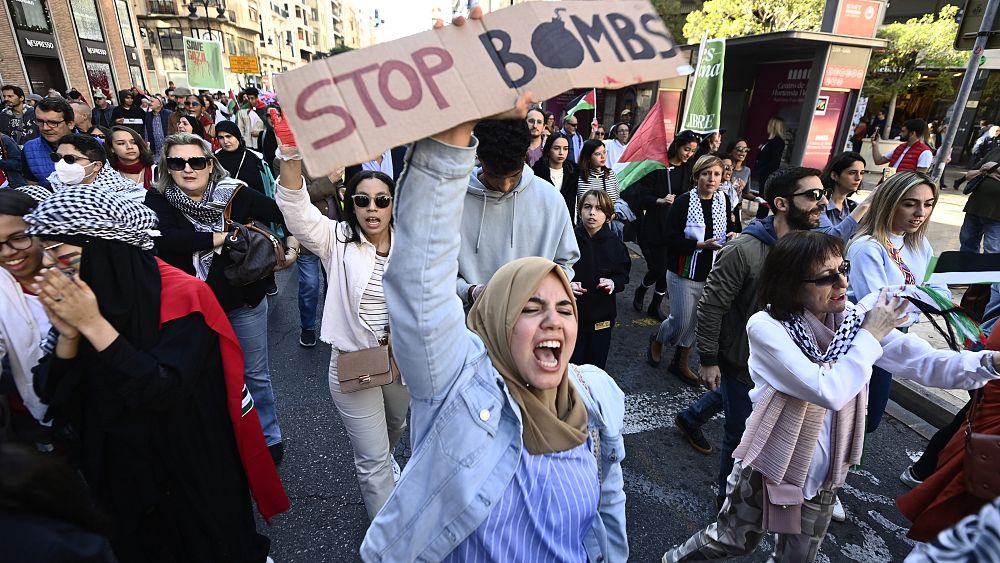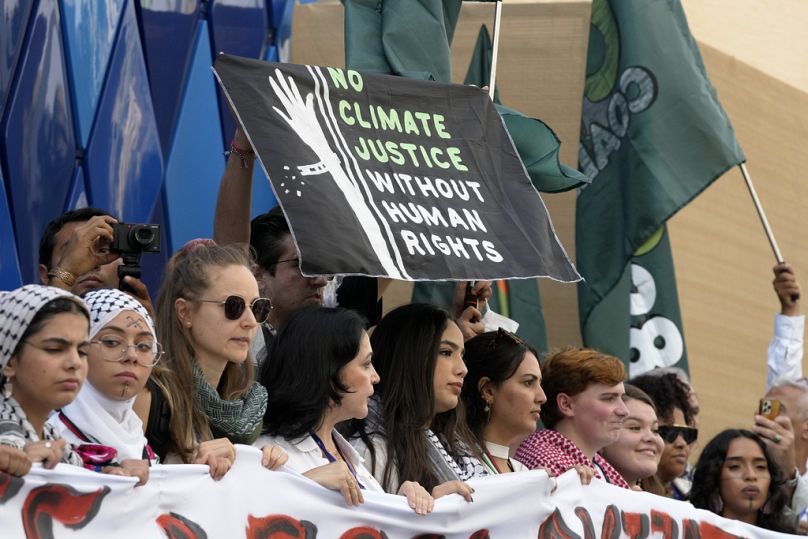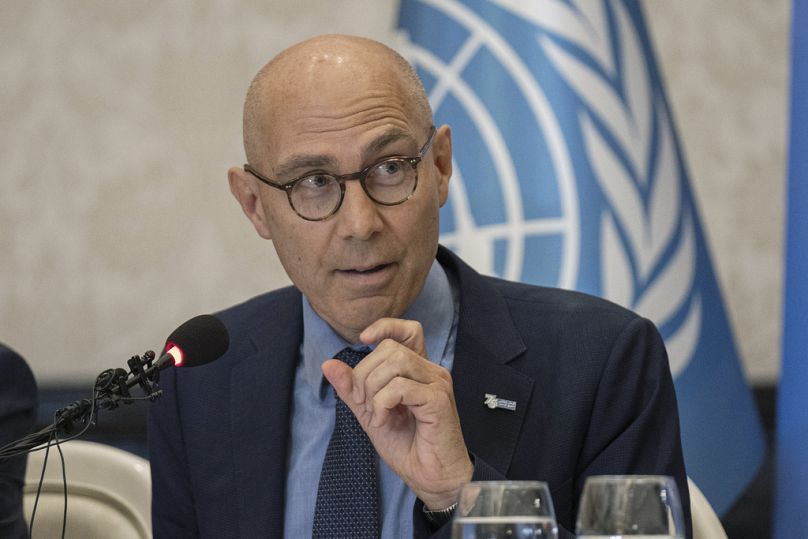
The United Nations adopted the Universal Declaration of Human Rights on 10 December 1948. Considered to be the most important memorandum on civil liberties, this document set the standard in a post-war world.
“The essence of the Declaration is that everyone is born equal and has human rights from birth, rights that are universal and indisputable. In this way, it laid the foundations for many human rights agreements,” Hugh Williamson, the director of the European and Central Asian division at Human Rights Watch, told Euronews.
When the Declaration was ratified in Paris, the UN only had 58 members, with 48 countries voting in favour. Today, most member states of the 190-member body have ratified legally binding treaties based on the principles of the Declaration.

According to Erica Harper, the Head of Research Studies at the Geneva Academy of International Humanitarian Law and Human Rights, this agreement is much more than just a symbol of equality and respect, it is an essential guide, offering timeless principles rooted in the human rights of all societies.
“I think it goes far beyond the symbolic, if only because the Declaration laid the foundations for what was to follow. It led to a series of treaties covering a wide range of human rights issues, from children’s rights to gender discrimination to the relationship with disability in the workplace,” she told Euronews.
“This Declaration was drawn up in response to a series of catastrophic world events, marking a moment when all States could unite and commit themselves to the fundamental principles that should govern humanity,” Harper said.
Are these principles at risk?
However, many challenges in the field of human rights remain. As Williamson pointed out: “Many fundamental principles such as freedom of expression, freedom of assembly, the right to demonstrate, freedom of association, the right to organise, whether for trade unions or political parties, are all being violated around the world.
He added: “Europe is far from perfect if we think about the situation of refugees and discrimination. An important article of the Universal Declaration states that everyone has fundamental human rights, regardless of their gender or ethnicity, for example. So racism is a huge problem in Europe.”
Cecilia Marcela Bailliet, the UN’s independent expert on human rights and international solidarity, told Euronews that the EU is not a perfect example when it comes to respecting the principles set out in the Universal Declaration.
Jean-Claude Samouiller, the president of Amnesty International France said, “In the United States, the right to abortion is regressing, as it is in Hungary and Poland. Our main concerns today are in Israel, Gaza and the occupied Palestinian territories, where the various warring parties are systematically violating human rights, with no respect for human life or dignity. This is also the case in Ukraine, where bombardments are affecting civilians and civilian infrastructure.”
“We are also very concerned about the situation of women in Afghanistan, which we describe as crimes against humanity, and in Iran, both for the situation of women and for that of all Iranians,” he added.
And yet, in hindsight, the experts remained optimistic about the progress made over the last 75 years.

“For me, the Universal Declaration of Human Rights is the most perfect story of emancipation, current, universal and perpetually relevant. When we look at the world today, we are confronted with images of war and destruction, but we are also inspired by the incredible demonstrations of solidarity that are taking place in almost every city in the world, in reaction to violations affecting populations in different regions, not only neighbouring regions, but also very distant ones, all demanding the rights of all peoples to peace” said Bailliet.
Harper agreed: “Globally, we have much greater respect and better protection of human rights than in 1948. For example, the rights of disabled people were not mentioned in the 1948 convention. New rights have also been created. Last year, for example, a new right to a clean, healthy and sustainable environment was recognised by the Human Rights Council, and then by the UN General Assembly”.
What is the current situation?
To take stock of the human rights situation around the world, 75 years after the adoption of the Declaration, Samouiller highlighted one of the 30 fundamental rights set out in the document while Bailliet stressed the importance of providing a human rights education at school.
“Perhaps there is one article in the Declaration that allows all the others to be asserted, and that is the right to freedom of expression,” Samouiller said.
“It is crucial to remain very vigilant about the right of expression, the right to demonstrate and the right of association because these rights allow us to claim all the others. And when an authoritarian system takes hold, the first victims are political opponents, defenders of rights, journalists and intellectuals.”
“I firmly believe in the need to invest in human rights education,” added Bailliet. “All schools should teach the Universal Declaration of Human Rights. I live in Norway and I know that Norwegian children are taught about the Convention on the Rights of the Child. They go home able to express clearly what this means to the State, but also to their families. It’s a huge step towards emancipation”.





